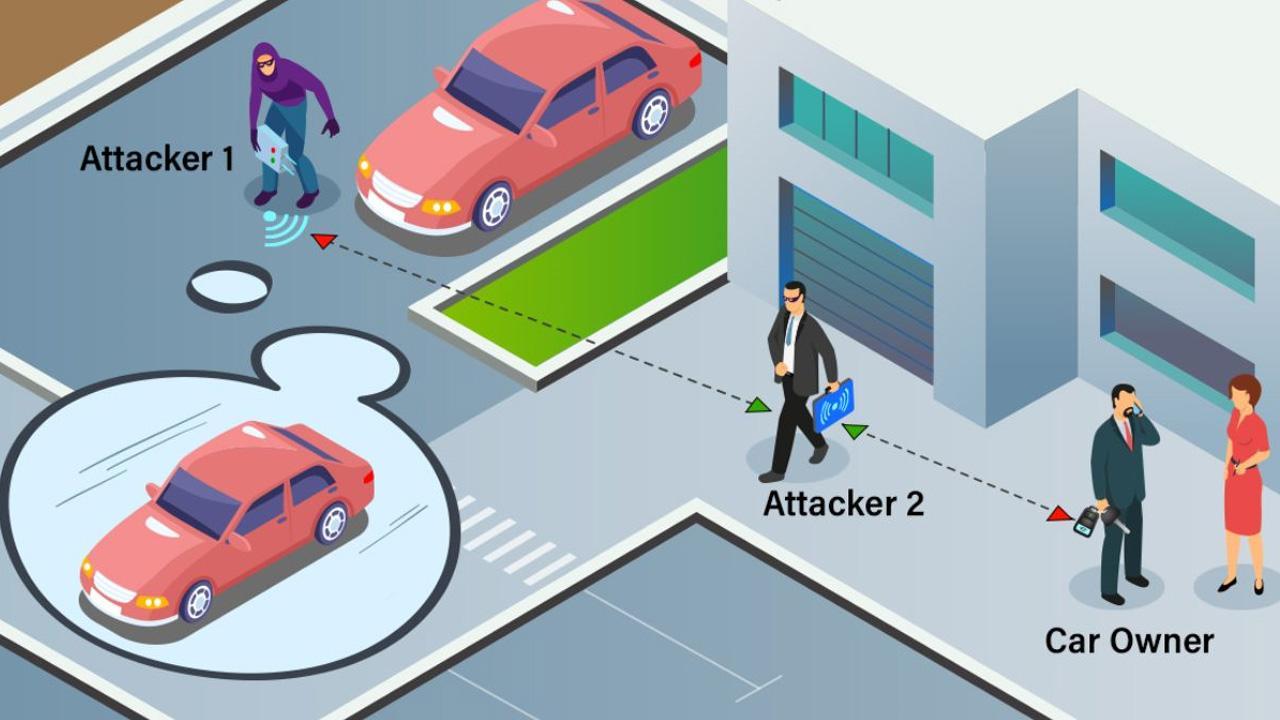An intruder can exploit vulnerabilities in keyless entry and start systems using a digital theft technique known as a "relay attack." Initially, the attacker stands close to the vehicle owner and transmits the signals he detects to his partner using a special device.

In the wake of the increasing cyber threats to our vehicles, HackersEra is warning automakers about the latest automotive security risk: passive keyless entry system hacking. This type of hacking allows malicious actors to gain access to a vehicle's keyless entry system and even steal it. With this in mind, it is important for automakers to take steps to protect their vehicles from such attacks. By implementing robust security measures like encryption and authentication protocols, they can ensure that their customers are safe from hackers who are looking to exploit passive keyless entry systems. HackersEra is doing its part in helping automakers stay ahead of the curve by providing them with comprehensive security solutions and educating them on best practices for securing their vehicles against these types of attacks.
ADVERTISEMENT
An intruder can exploit vulnerabilities in keyless entry and start systems using a digital theft technique known as a "relay attack." Initially, the attacker stands close to the vehicle owner and transmits the signals he detects to his partner using a special device. The second attacker stands as close as possible to the vehicle while holding the second device, which is capable of transmitting the signal relayed by the first attacker. The vehicle normally responds to the signal, convincing the car's security system that the owner is close by and unlocking the door.
Vikash Chaudhary, CEO of HackersEra, stated, "An intruder can steal valuables from vehicles by remotely unlocking it without the customer touching or pressing the key, then starting and fleeing with the vehicle." In addition, once the door has been unlocked, an attacker can connect a wireless OBD-II dongle and then exploit a CAN bus vulnerability to cause damage. We are all aware that tampering with CAN bus message injection while driving can result in a car accident, which is a very serious issue because a person's life may be in danger.
HackersEra brought security issues with the keyless entry system and the start ignition to the attention of the government and automakers. The stakeholder community must create a system to protect automotive cyberspace. It is not always clear which insurance companies will compensate for a stolen vehicle or lost property. How often do Indian automakers conduct penetration tests on their products, and are they required to update purchasers on the status of cybersecurity reports? What steps will automakers take if a collision results in severe injury or death?
The Role of Automakers in Cybersecurity
Connected automobiles are becoming increasingly susceptible to cyberattacks. This requires automakers, service providers, and vehicle owners to implement safety measures for their vehicles. By implementing cyber security solutions for the automotive industry, automakers can guarantee the safety of their vehicles. HackersEra, which provides innovative services to 15+ OEMs and 10+ vehicle manufacturers, merits our trust.
 Subscribe today by clicking the link and stay updated with the latest news!" Click here!
Subscribe today by clicking the link and stay updated with the latest news!" Click here!












